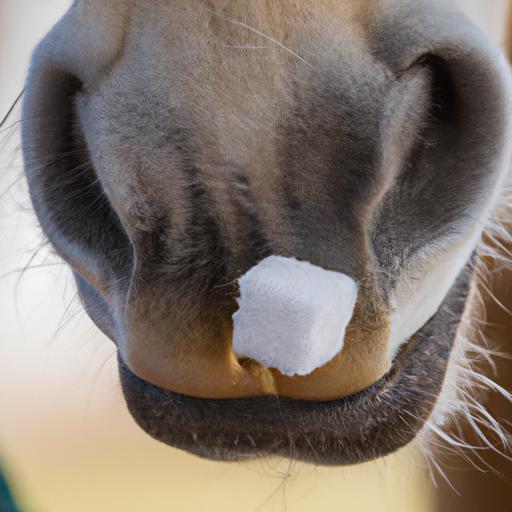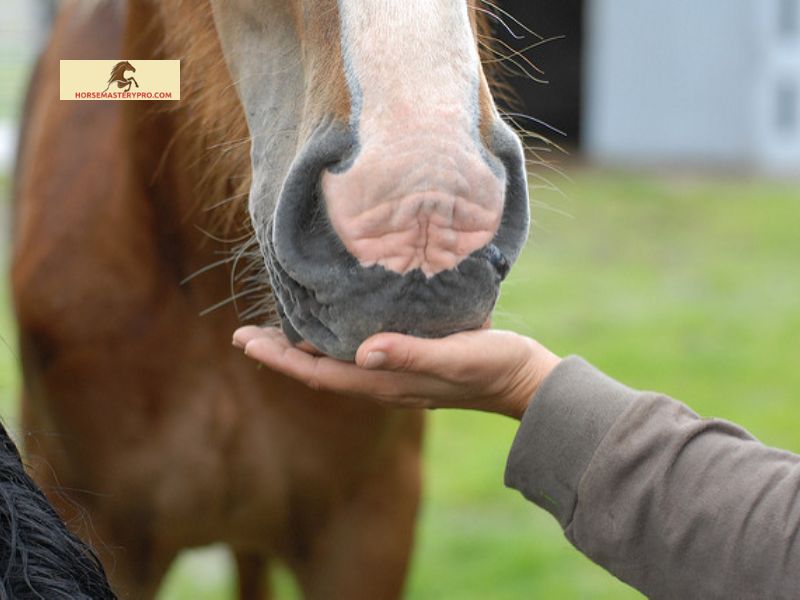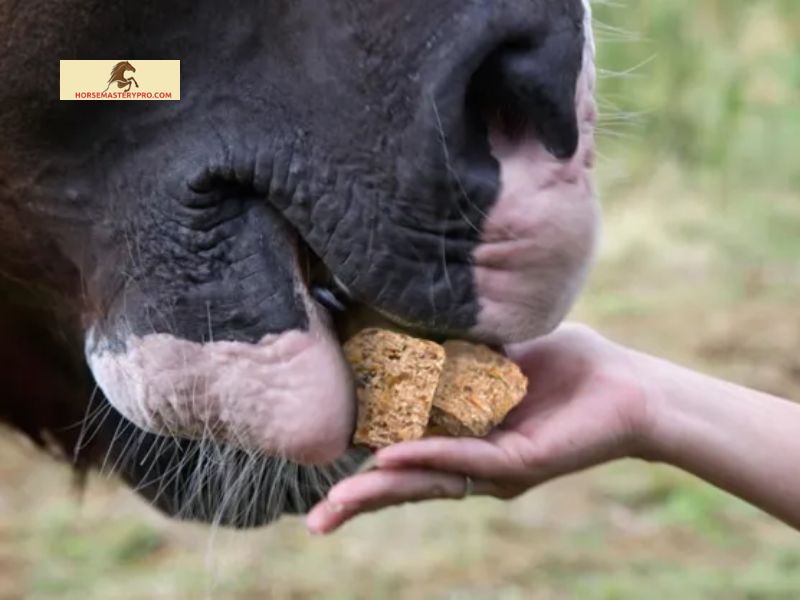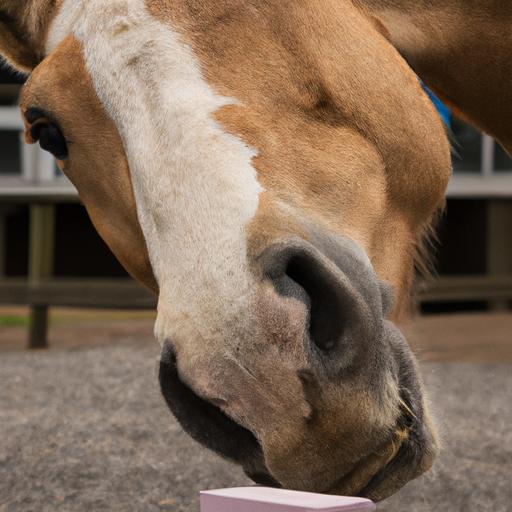Discover the truth about feeding sugar cubes to horses. Learn the guidelines, impact on health & behavior, and recommended serving size. do horses eat sugar cubes? Find out now!
Introduction

As equestrians, we strive to provide the best care for our beloved horses. From their diet to their exercise routine, every detail matters. One particular aspect that often raises questions is the inclusion of sugar cubes in a horse’s diet. Are these sweet treats safe and beneficial for our equine companions? Let’s explore the topic together and uncover the truth behind the infamous question: Do horses eat sugar cubes?
A Brief Overview of Horses’ Diet
To understand the potential impact of sugar cubes on a horse’s health, it’s essential to first grasp the basics of their natural diet. In the wild, horses are herbivorous creatures, primarily grazing on grass and other forms of forage. Their digestive systems are designed to efficiently process fiber-rich foods, emphasizing the importance of a high-quality, balanced diet.
Introduction to Sugar Cubes as a Potential Treat for Horses
Sugar cubes, those tiny morsels of sweetness, have long been associated with rewarding our equine friends during training or as a gesture of affection. These bite-sized treats have a rich history in the equestrian world and are often used as a tool for bonding and positive reinforcement. But what do sugar cubes actually offer in terms of nutrition, and are they suitable for our horses’ well-being?
Now that we have set the stage, let’s delve deeper into the topic. In the next section, we will explore the intricacies of horses’ diets and the potential impact of sugar cubes on their overall health and behavior. Stay with me as we uncover the truth behind this tantalizing question: Do horses eat sugar cubes?
Understanding Horses’ Diet

Natural Diet of Horses in the Wild
To comprehend the impact of sugar cubes on our equine companions, we must first grasp what horses consume in their natural habitat. In the wild, horses primarily rely on grazing lush pastures, consuming a varied diet of grasses, herbs, and shrubs. Their digestive systems have evolved over centuries to efficiently process this high-fiber, low-sugar diet.
Importance of Forage and Roughage in a Horse’s Diet
Forage, such as hay or pasture, plays a vital role in maintaining a horse’s overall well-being. It provides essential nutrients, including carbohydrates, proteins, vitamins, and minerals. The long, fibrous nature of forage also promotes healthy digestion and helps prevent issues like colic and gastric ulcers.
Roughage, such as hay or grass, stimulates chewing, which produces saliva and aids in the breakdown of food. This process is crucial for horses as it helps regulate their digestive system and prevents boredom-related behaviors, such as cribbing or chewing on stable fixtures.
Limitations and Risks of Adding Sugary Treats to Their Diet
While sugar cubes may seem like innocent indulgences, it’s essential to consider the potential risks associated with introducing sugary treats into a horse’s diet.
- Dental Health: Excessive sugar consumption can contribute to dental problems, including tooth decay and cavities. Horses’ teeth are designed for grinding fibrous materials, not sugary substances.
- Digestive Upset: Horses have delicate digestive systems that can be easily disrupted by a sudden influx of sugar. Excessive sugar intake may lead to imbalances in gut bacteria, causing issues like colic or laminitis.
- Weight Management: Sugary treats are calorie-dense, and excessive intake can contribute to weight gain or obesity. This can strain a horse’s joints, increase the risk of metabolic disorders, and negatively impact overall health.
As we unravel the mysteries behind horses’ diets, it becomes clear that adding sugary treats, like sugar cubes, should be approached with caution. In the next section, we will explore the specific details of sugar cubes as horse treats, shedding light on their nutritional content and potential impact on our equine companions. Stay tuned as we uncover the secrets of these tiny, tempting morsels.
Pros and Cons of Feeding Sugar Cubes to Horses

Sugar cubes, those delightful sweet treats, have been a go-to option for horse owners when it comes to training and bonding. However, like any other aspect of a horse’s diet, it’s important to weigh the pros and cons of incorporating sugar cubes. Let’s explore the potential benefits and risks associated with feeding sugar cubes to horses, and discover alternative options for horse treats.
A. Benefits of Using Sugar Cubes as Treats in Training and Bonding
Sugar cubes have established themselves as a popular reward system in horse training and bonding. These tiny morsels of sweetness can serve as a motivational tool, reinforcing positive behavior and strengthening the human-equine bond. The immediate gratification of a sugar cube can provide an instant sense of accomplishment for both the horse and the handler, fostering trust and cooperation.
Furthermore, sugar cubes are highly portable and easy to handle, making them convenient for training sessions, competitions, or simply as a token of appreciation during grooming. Their small size allows for precise reinforcement, ensuring clear communication and effective training.
B. Risks Associated with Excessive Sugar Intake in Horses
While sugar cubes can be a tempting indulgence, it is crucial to be aware of the potential risks associated with excessive sugar intake in horses. Consuming large amounts of sugar can lead to weight gain, metabolic issues such as insulin resistance, and an increased risk of developing laminitis, a painful hoof condition. Horses that are prone to these conditions or have a history of metabolic disorders should have their sugar intake closely monitored.
Additionally, sugar can disrupt the microbial balance in the horse’s gut, potentially leading to digestive upsets and colic. It is essential to remember that horses are not designed to handle high amounts of sugar in their diets, as their digestive systems are more suited to fiber-rich forage.
C. Moderation and Alternatives to Sugar Cubes for Horse Treats
To strike a balance between indulgence and a healthy diet, moderation is key when it comes to feeding sugar cubes to horses. Limit the number of cubes offered in a single session and consider using them sparingly for special occasions or as occasional rewards, rather than as a daily treat.
Fortunately, there are alternative options for horse treats that can be just as enticing without the high sugar content. Carrots, apples, or even specially formulated low-sugar horse treats can provide a healthier and more balanced reward option. Always ensure that any treats offered align with your horse’s dietary needs and are introduced gradually to prevent any digestive upsets.
In the next section, we will discuss the guidelines for feeding sugar cubes to horses, including recommended serving sizes and best practices for introducing them into your horse’s diet. Remember, moderation and informed choices are vital for maintaining your horse’s overall well-being.
Conclusion
In conclusion, the use of sugar cubes as treats for horses is a topic that requires careful consideration. While these sweet indulgences may have a place in training and bonding, it is crucial to approach their inclusion in a horse’s diet with moderation and awareness of potential risks.
Throughout this article, we have explored the natural diet of horses, the historical use of sugar cubes as treats, the nutritional content of these cubes, and the potential impact on a horse’s health and behavior. It is clear that excessive sugar intake can lead to various health issues, including weight gain, dental problems, and even metabolic disorders.
When it comes to feeding sugar cubes to horses, following guidelines is essential. Recommended serving sizes and frequencies should be adhered to, ensuring that the overall diet remains balanced and healthy. Introducing sugar cubes gradually and monitoring a horse’s response is crucial. Each horse is unique, and adjusting sugar intake based on their individual needs is vital for maintaining their well-being.
As responsible horse owners, we must prioritize the health and happiness of our equine companions. While sugar cubes can certainly be a delightful treat, it is crucial to exercise caution and make informed decisions about their inclusion in a horse’s diet.
For more expert advice and information on equine care, visit our website at horsemasterypro.com. Let’s continue to empower ourselves with knowledge and provide the best care for our four-legged friends.


